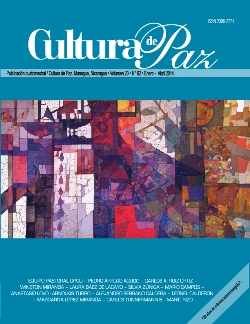Teología y cultura de paz
DOI:
https://doi.org/10.5377/cultura.v20i62.1466Palabras clave:
Paz, violencia, teología, perdón, iglesiasResumen
Paz y violencia son dos extremos opuestos. La Paz desde la perspectiva bíblica, la Paz (Šalom), conlleva un compromiso amplio con la creación. ausencia de guerra, armonía con el medio ambiente y la familia, en una palabra bienestar. No se puede reducir la paz a un ámbito racionalista, es necesario tomar en cuenta las emociones y la espiritualidad, pues la paz pasa por un proceso de interiorización. Hoy en día la paz es parte de como Jürgen Moltmann y Ernst Bloch. También Martín Lutero ya tenía preocupaciones sobre la paz, porque la paz siempre ha sido un problema de todas las generaciones y de manera clara en la teología.
La idea del Mesías mismo en los profetas está ligada a la paz, el profeta paz a partir de una propuesta de valores para la paz, a lo cual la teología tiene mucho que aportar.
DOI: http://dx.doi.org/10.5377/cultura.v20i62.1466
Cultura de Paz Vol.20 No.62 2014; 16-24
Descargas
1323

